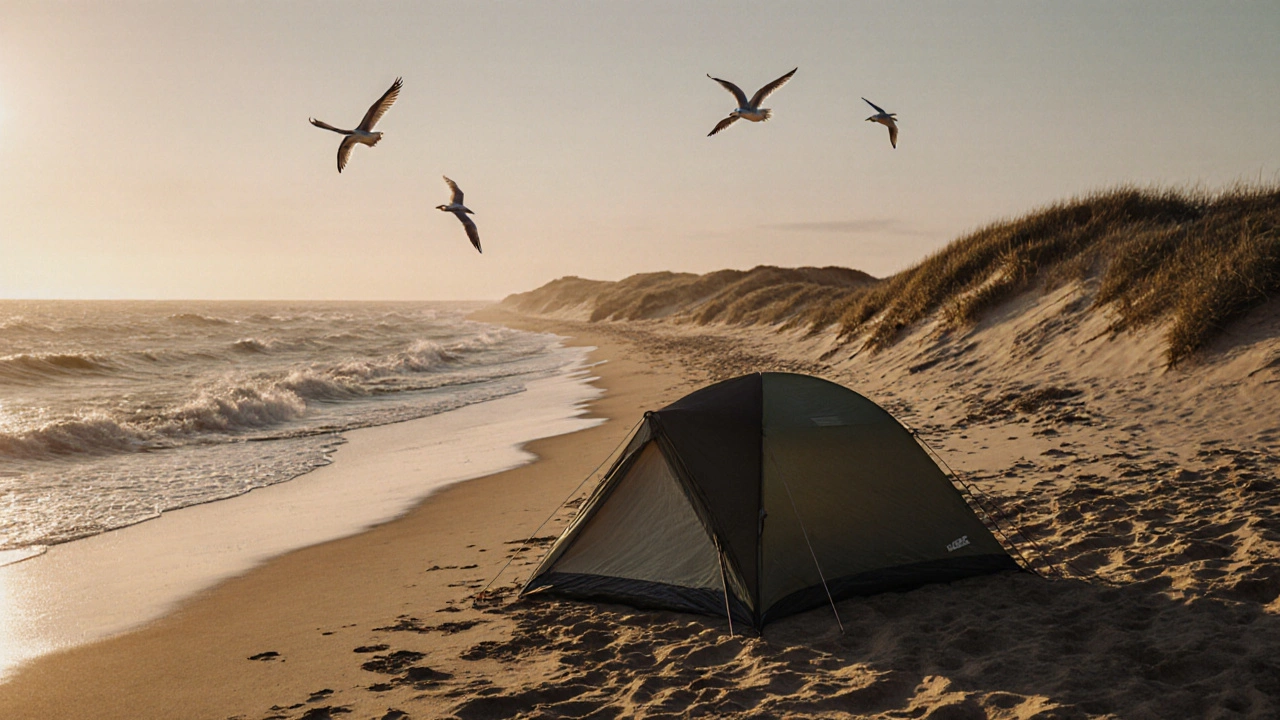Beach Camping Rules – What You Must Know Before You Pitch
Thinking of waking up to waves and sunrise? Beach camping is amazing, but you’ll get kicked out if you ignore the rules. Below you’ll find the must‑follow basics that keep you safe, legal, and welcome on the sand.
Key UK Regulations for Beach Camping
First off, most UK beaches are public land, which means you can’t just set up a tent anywhere. Local councils own the beachfront and set limits on when and how you can camp. In England and Wales, you’ll usually need permission from the council or the landowner – check the website or phone the office before you arrive.
If you’re in Scotland, the “right to roam” gives more freedom, but you still have to follow the Scottish Outdoor Access Code. That means no camping within 30 m of the high‑water mark, you must leave no trace, and you can’t stay longer than two nights in one spot.
For Wales, many beaches are managed by the local authority or a National Trust property. Some allow overnight stays in designated areas, often with a small fee. If you’re unsure, look for signs at the car park or ask a ranger.
Practical Tips to Keep Your Beach Camp Safe and Legal
Pick a spot that’s away from dunes used for wildlife nesting – you’ll often see signs warning about birds or protected plants. Set up your tent low to the ground, use a sand anchor, and avoid digging holes that could collapse at high tide.
Fire rules are strict. Only use a portable gas stove; open fires are banned on most beaches because they can spark wildfires and leave scarred sand. Keep a bucket of water nearby just in case.
Dispose of waste properly. Pack out everything you bring – no rubbish, no leftover food, no plastic. Many councils provide recycling bins at the car park, but once you’re on the sand, you’re responsible for taking it back.
Noise matters. Keep music low and respect other beach users. Late‑night parties are a quick way to get a warning or a fine.
If you have a pet, it must stay on a leash and be under control at all times. Some beaches have specific dog zones, so follow those rules to avoid a fine.
Parking rules are another trap. Don’t park in restricted areas or where a sign says “No Overnight Parking.” Use a designated car park and keep your vehicle within the allowed time window – usually 2‑4 hours.
Finally, plan your exit. Check the tide schedule so you’re not caught by a rising tide while setting up or breaking down. A quick look at a tide chart can save you a dangerous scramble.
By following these simple rules, you’ll enjoy the sand, the sea, and a stress‑free night under the stars. Remember: respect the locals, respect the environment, and you’ll be welcome back for the next beach adventure.
-
 VIEW POST
VIEW POSTIs It Illegal to Camp on the Beach in England? The Real Rules
Nov, 16 2025|0 CommentsCamping on beaches in England isn't automatically illegal-but it's rarely allowed without permission. Learn where you can camp legally, what happens if you get caught, and safer alternatives for beachside nights. -
 VIEW POST
VIEW POSTCan You Camp on Public Beaches in the UK? Everything You Need to Know
Apr, 27 2025|0 CommentsThinking of sleeping under the stars on a UK beach? The rules are trickier than they seem. This article explains the legal ins and outs of camping on public beaches, shares practical tips to avoid fines or trouble, and highlights cool beach spots where camping might be possible. Get the facts, avoid the pitfalls, and learn how to make your UK beach camping dream a reality—if you know how to do it right.